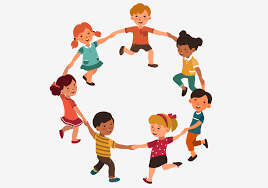Why Diversity in Books Matter
A brief look at diversity in children's books
Felicia Jones
9/6/20253 min read


Introduction
Growing up, I was always an avid reader. I have fond memories of reading Junie B. Jones, Amelia Bedelia, The BFG, and so much more. But one thing that stood out to me as a child—all of the characters in those books did not look like me. Granted, a lot of the stories I read featured talking animals, but as an African American girl, it was rare for me to see myself in books. In this post, I will explain why I believe diversity in books is important. There has been major progress in diversity, but I feel there could be more.
The State of Diversity in Children’s Books
According to the National Education Association, in 1985, less than one percent of books featured Black main characters. And by 2015, not much had changed. Children were more likely to encounter a talking animal as a main character than a POC character. However, lately, these stats have been changing for the better. According to the Cooperative Children’s Book Center, as of 2024, around fifty-one percent of the books they received featured a BIPOC character. Even though diversity in children's literature is increasing, there is still a need for characters who are Indigenous, have disabilities, or follow different religions.
My Take on Diversity
I think diversity matters because it allows BIPOC children to see that their stories and voices matter. It allows us to see ourselves in a positive light without negative stereotypes. I grew up in a military family and struggled with moving to a new school when I was 11. If I had read a book like Curlfriends: New Friends in Town by Sheree Miller, it might have helped calm my nerves and allowed me to see I wasn’t alone. Other titles like Hair Love by— can help a Black child learn to love and feel confident with their coily hair. Diverse books can also be a window into the lives of others with different cultures and lifestyles, such as ¡1, 2, 3 Salsa! by Raúl the Third and Loaf the Cat Goes to the Powwow by Nicholas DeShaw.
I also think that diversity can teach children empathy. Stories such as Last Stop on Market Street teach us to find the beauty in everyday life and to be grateful. They also showcase a diverse group of people in the city.Some people believe that children who are not BIPOC cannot relate to characters or cultures different from their own. I don’t think that’s true. BIPOC peoplehave been reading and consuming media from people who look different for many years, and many of us have developed empathy and even found ways to connect to these characters.This is because themes of love, hardships, and friendships transcend race, religion, and culture—they’re part of human nature.
Why Diversity Matters
Having diverse characters in books can help boost BIPOC children’s self-worth and esteem. It tells children that their stories matter. It allows BIPOC writers to tell stories that often don’t get told. Many librarians refer to books as ‘windows’ to other perspectives. This allows children to learn about other cultures and how to connect with people who are different from them. Diverse books also reflect the world, which is a diverse place with so many different cultures. Having accurate representation also reduces negative stereotypes and prejudices. If diversity regresses, it will have a big impact on society. There will be children who lack empathy and develop prejudices. Today, there are a lot of books that have been banned or challenged because of their diverse topics.
Conclusion
In conclusion, diversity is not only important but necessary. It helps shape a more empathetic, accepting world. It allows children to feel seen and gives other children the chance to understand those who are different. In the future, I hope diversity continues to grow. What is your favorite book featuring a BIPOC character? Subscribe for more.
Sources:
https://www.nea.org/nea-today/all-news-articles/why-we-need-diverse-books
